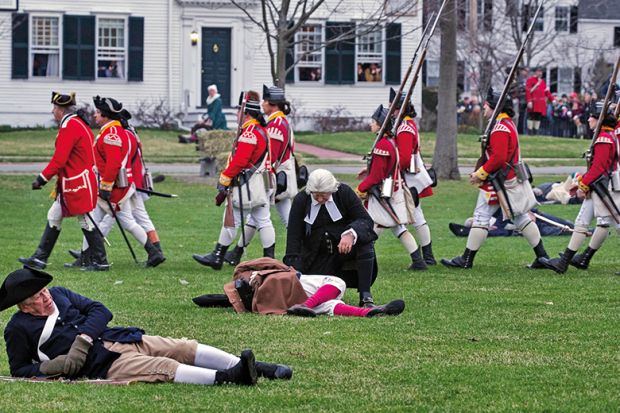Academics whose research comes under attack in the media and online are being offered extra support by their university under a new model it is hoped can be adopted elsewhere.
In a move praised by a professor who suffered a year-long “smear campaign” because of her work on decolonisation, the University of Leicester is doing more to protect staff who find themselves unexpectedly thrust into the front line of the culture wars.
“We, like many universities, have experienced situations where our academics and professional services staff have suffered a backlash on social media and in other contexts; where people have reacted strongly to research stories and individuals have been subjected to what we call hostile responses,” said Henrietta O’Connor, Leicester’s provost.
Campus resource: If universities push staff towards social media, they must protect them, too
“As an institution we realised we were only partially equipped to deal with it and needed to put more support around the impact on the individual and the challenges they were facing.”
As well as offering practical support and guidance to all staff, Leicester has developed a “first responder” system whereby an employee being abused is given a main point of contact – an academic or someone from human resources – who follows a set escalation process based on a risk assessment of the severity of the situation.
This can involve the person’s line manager, HR representatives, the communications team, security and police as well as legal experts, if it is felt that there has been a “campaign of harassment” against an individual.
“This isn’t about stopping people doing research. It is much more about finding ways to support everyone in their research endeavours and to prepare them, when their stories are released, for the likelihood that sometimes there may be responses they weren’t anticipating,” said Professor O’Connor.
The effort was sparked by the case of Corinne Fowler, professor of colonialism and heritage at Leicester, whose review for the National Trust on the connections its properties had to the British empire was subjected to hostile reporting after Cabinet minister Jacob Rees-Mogg accused it of “denigrating British history”.
Professor Fowler said although she had been expecting some criticism because of the sensitive nature of her research, she was unprepared for the intensity of what unfolded.
At its height, she said there were news stories being published about her “every few hours” and she was being bombarded with phone calls.
“If there is an inflammatory report about your research, it means you get a vast volume of hate speech against you,” she said. “There are emails, letters, threats to your safety as well as attempts to smear and discredit your work. It is hard to describe how bad it was.”
Professor Fowler said she and the university experienced a “steep learning curve” to deal with the “unprecedented situation”, which showed the need for more formal processes to be put in place.
She is now one of a group of academics who have experienced harassment who are conducting a research project that will inform the university’s initiative and be shared more widely via a toolkit and webinars.
“I think that it is critical that all vice-chancellors and universities get to the barricades on this issue,” Professor Fowler said. “This is a really pressing problem and harassment is very much on the rise and we need to take the threats extremely seriously and protect academic freedom.”
POSTSCRIPT:
Print headline: Staff under attack get extra protection
Register to continue
Why register?
- Registration is free and only takes a moment
- Once registered, you can read 3 articles a month
- Sign up for our newsletter
Subscribe
Or subscribe for unlimited access to:
- Unlimited access to news, views, insights & reviews
- Digital editions
- Digital access to THE’s university and college rankings analysis
Already registered or a current subscriber? Login









